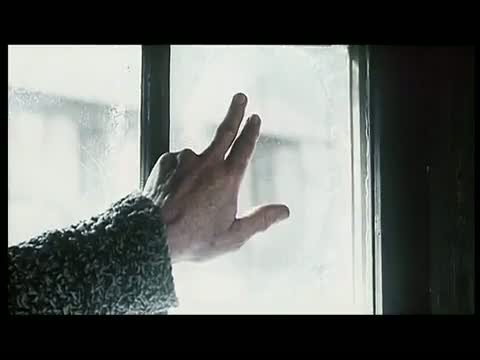Kamera:
Pavel LebeshevMusik:
Eduard ArtemyevBesetzung:
Bernhard Bettermann, Iris Böhm, Anatoliy Kotenyov, Michael Mendl, Ирина Пантаева, Hans Peter Hallwachs, André Hennicke, Aleksandr Efremov (mehr)Streaming (3)
Inhalte(1)
Oberstleutnant Clemens Forell wird 1946 zusammen mit 3.000 deutschen Soldaten in ein sibirisches Straflager am Ende der Welt deportiert. Allein der Gedanke an Flucht hält ihn während der auszehrenden Arbeit in den Bleiminen am Leben. Mit Hilfe des an Krebs erkrankten Lagerarztes Dr. Stauffer, der ihm seine heimlich zusammengestellte Ausrüstung überlässt, gelingt Forell der Ausbruch. Seine dreijährige Odyssee durch Asien endet erst nach über 14.000 Kilometern. Zuvor wird er unter Spionageverdacht in Teheran erneut festgenommen, doch nach der Identifizierung durch seinen dort anwesenden Onkel kann er 1952 endlich nach Deutschland heimkehren. (ARD)
(mehr)Kritiken (5)
I don't want to diminish the reality on which the film was based, but the man deserves a much more significant commemoration. I also don't consider Bauer's book to be perfect. It is only a very simple literary (therefore very readable for the ordinary consumer) story about one superhuman feat. In the parts where the writer scores points with his gripping description of the extreme situations Clemens Forell finds himself in, the screenwriter either misses the mark, or the director fails. From the plot, which is totally castrated by the most thrilling moments and those that are relatively attractive for the audience, the director wasn't able to draw more than single images, without any emotional connections. Forell wanders, experiencing moments of suspense, fear, and action, but overall, he’s stuck in a roundabout effect that points to the only possible ending. Moreover, that moment becomes (starting with the bridge crossing) the only real moment, despite its creeping kitschiness, that doesn't chill and can be believed. The Germans had to wait until Downfall to have their major film.
()
A criminally unbalanced picture with enormous potential in the true life story it’s based on. Unfortunately, the filmmakers only managed to exploit a small portion of that potential. Here and there we get some powerful moments, but the framing of the plot with the dogged pursuer or with the German idyllic village is so poorly crafted that in these moments it stoops to the level of a German TV series the likes of Der Bergdoktor. Additionally, the movie, especially after the escape, is too long and As Far as My Feet Will Carry Me loses all its energy. Fortunately, as a whole, it doesn't feel so bad, and at least it's an average movie, although I'd rather see the story presented as a documentary, rather than a routinely shot movie with a lot of “ifs and buts".
()
As Far as My Feet Will Carry Me relies on a strong story and an unusual perspective and contains several interesting and powerful scenes. On the other hand, it suffers from script imbalance, and excessive duration (the film should have been at least half an hour shorter or made as a miniseries). The ending is also problematic, and I am by no means the first to argue that the film should have ended with a confrontation at the border. Personally, what bothers me the most is that this German film significantly diminishes German responsibility for unleashing the war and the unbelievable massacres that occurred on the Eastern Front and in occupied territories. It is part of German war myths that, to a considerable extent, have been accepted by Western public opinion thanks to the Cold War, that only special units, primarily the SS, were responsible for the massacres and persecution of civilians. In reality, the field units of the Wehrmacht were also permeated with racism and callousness, with the 6th Army and the occupying units in Belarus being particularly brutal. The Soviets did not treat captured Germans kindly, and the conditions in prisoner camps were harsh, with many prisoners not surviving. However, these conditions were still much better than in German concentration camps, where Soviet captives ended up. This film trivializes German guilt and relativizes crimes against humanity. Furthermore, some of the script motifs are naive or superficially handled. Overall impression: 55%.
()
Ich war überrascht, wie wenig Emotionen es in diesem Film gab und wie unreal er stellenweise ausgesehen hat. Für das Treffen auf der Brücke gebe ich beide Daumen nach oben, ansonsten ist der Film aber nichts Besonderes. Ich habe mich die ganze Zeit gefragt, wie So weit die Füße tragen ausgesehen hätte, wenn ihn z. B. J. J. Annaud gedreht hätte. Der hätte die Sibirien-Panoramen, seine Fauna und Flora und vor allem das Gemüt des Haupthelden, der zwischen Vernunft und Wahnsinn schwankt, richtig genutzt. Und vielleicht hätte er sich sogar gegen die überflüssigen Szenen mit der wartenden Familie entschieden. Fast 2,5 langweilige Stunden.
()
It's more like a 3 and a half, with an emotionally and cinematically perfectly executed opening hour that is replaced by a more boring and surprisingly unoriginal part that falls a bit short of the set standard. You'll certainly root for the fugitive Forell, and you'll loathe the peace-loving Russian comrades, but that it will make the viewers chew their nails with suspense while watching it, not really. This ambitious war drama, which relies on portraying the perseverance and love of the good guys and the cruelty and pettiness of the bad guys instead of a flurry of action, isn’t quite there yet, despite its best efforts.
()

